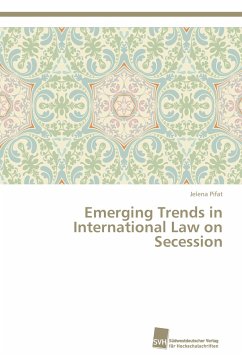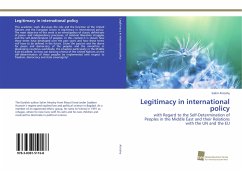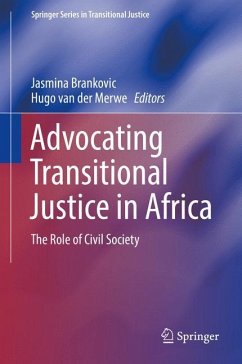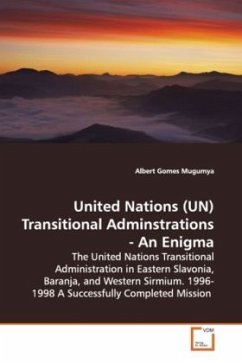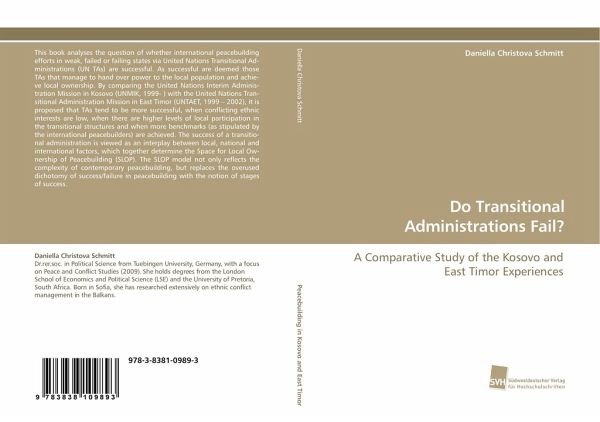
Do Transitional Administrations Fail?
A Comparative Study of the Kosovo and East Timor Experiences
Versandkostenfrei!
Versandfertig in 6-10 Tagen
89,90 €
inkl. MwSt.

PAYBACK Punkte
0 °P sammeln!
This book analyses the question of whether international peacebuilding efforts in weak, failed or failing states via United Nations Transitional Administrations (UN TAs) are successful. As successful are deemed those TAs that manage to hand over power to the local population and achieve local ownership. By comparing the United Nations Interim Administration Mission in Kosovo (UNMIK, 1999- ) with the United Nations Transitional Administration Mission in East Timor (UNTAET, 1999 - 2002), it is proposed that TAs tend to be more successful, when conflicting ethnic interests are low, when there are...
This book analyses the question of whether international peacebuilding efforts in weak, failed or failing states via United Nations Transitional Administrations (UN TAs) are successful. As successful are deemed those TAs that manage to hand over power to the local population and achieve local ownership. By comparing the United Nations Interim Administration Mission in Kosovo (UNMIK, 1999- ) with the United Nations Transitional Administration Mission in East Timor (UNTAET, 1999 - 2002), it is proposed that TAs tend to be more successful, when conflicting ethnic interests are low, when there are higher levels of local participation in the transitional structures and when more benchmarks (as stipulated by the international peacebuilders) are achieved. The success of a transitional administration is viewed as an interplay between local, national and international factors, which together determine the Space for Local Ownership of Peacebuilding (SLOP). The SLOP model not only reflects the complexity of contemporary peacebuilding, but replaces the overused dichotomy of success/failure in peacebuilding with the notion of stages of success.





